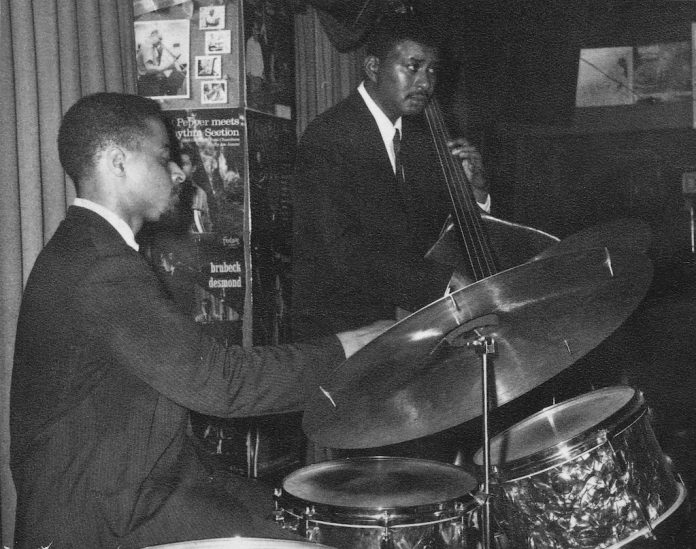The drummer Jimmy Cobb once said during an interview that he was just trying to get it done. “You have to be at the right place at the right time with the right stuff, and then you got a chance”. Quite a classic of understatement, that.
Jimmy Cobb was at the right place at the right time in 1959 when he played drums on Miles Davis’ Kind Of Blue, the best-selling jazz album of all time, now past sales of five million worldwide. The Davis quintet, with John Coltrane, Red Garland, Paul Chambers and Philly Joe Jones was arguably the greatest ever hard-bop jazz combo in the mid to late 1950s. In late 1958 Miles finally parted company with his drummer, Philly Joe, after years of arguing with him over his addiction and unreliability, although he thought he was a great drummer. He offered the job to Cobb Who had occasionally been filling in when Jones was unavailable.
Miles called Cobb early one evening in 1958 and asked if he could make the gig that night. “I say where?” Cobb remembered. “He say Boston.” Cobb caught a plane to Boston and arrived in time to play on the second part of ’Round Midnight. “When they got to this certain part”, he recalled, “I played this little break with them, and I was in the band. No rehearsal, no nothing.” Jimmy Cobb was the new boy at the Kind Of Blue recording and not sure what was required of him. Miles said “Jimmy you know what to do. Just make it sound like its floating.”
The first weeks in the Miles band could not have been easy for Jimmy Cobb. Miles, it is reported, would come up behind him, on the bandstand, as he played and whisper in his ear that Philly Joe Jones was his favourite drummer. Miles Davis’s satisfaction or annoyance with one of his musicians could change by day, sometimes by the hour. He was also playing in one of the finest and most integrated rhythm sections of all time, linking with Wynton Kelly on piano and Paul Chambers on bass. Somehow, he managed to stay cool at the Columbia Studios as they recorded Kind Of Blue; Miles arrived with just sketches of what he wanted played and they were working with a series of scales rather than the usual chord progressions.
The music on Kind Of Blues is ethereal, and it is to his credit that Cobb, along with the light touch of Bill Evans, the pianist on most tracks, manages to make the music sound as though it is floating. It’s interesting to speculate what Kind Of Blue would have sounded like with regular pianist Wynton Kelly and Philly Joe Jones on drums. Cobb fitted in well and appeared on many albums, both with the Davis quintet and as one third of the Kelly, Chambers and Cobb trio. When the three of them left Miles in the early 60s, they continued to play and record regularly as a working trio until Chambers’ untimely death in 1969.
In 2002, the New York Times singled out Kelly, Chambers and Cobb as “the gold standard for straight ahead, post-war jazz rhythm”. Jimmy Cobb continued to play in the hard-bop style for the rest of his career. He played on Sketches Of Spain and Porgy And Bess, two of the three classic recordings by Miles with a large orchestra and arrangements by Gil Evans. He was always in great demand due to his association with the Davis band and worked regularly all through the lean years of the 1970s when recording work was scarce for straightahead players. Happy to be a sideman for much of the time, he did become a leader, mainly in the last two decades. His band was called Cobb’s Mob and received good reviews. The National Endowment in USA named him as a Jazz Master in 2009.
James Cobb died from lung cancer at his home in Manhattan at the age of 91. He is survived by his wife and their two daughters.
Jimmy Cobb, drummer, b. Washington, D.C., 20 January 1929, d. NYC, 24 May 2020.


